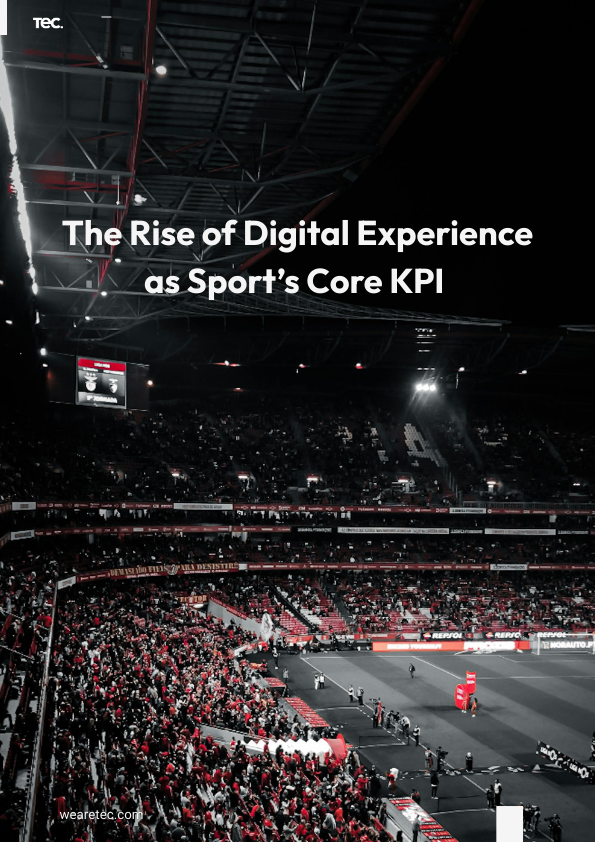Sport has always been about gaining the edge – being a millisecond faster, employing the smarter strategy, having the louder crowd. Today, that edge is being redefined by artificial intelligence that is quiet, complex work behind the scenes: powering better decisions, predicting fan behavior, tailoring content in real time, and helping sports organisations rethink how they connect, manage, and grow.
What was once an innovation is now part of sports infrastructure and the smartest teams are already treating AI like a core function – not an experiment.
Why AI Is a natural fit for sports
Sport has always been driven by data – scoreboards, timesheets, player stats – but what’s changed is the speed, scale, and sophistication of how that data is captured and processed across sport business.
AI now makes it possible to:
- Anticipate fan drop-off during a stream and adjust the content on the fly.
- Personalise ticket offers based on past behavior, in real time.
- Predict crowd surges in a venue and dynamically adapt staffing and security.
- Optimise merchandise recommendations based on what fans are engaging with live.
For organisations, it’s increased efficiency, higher engagement, and often, new revenue streams. For fans, it feels like a smoother, smarter experience.
So, what are smart organisations doing differently?
- Turning data into product
Clubs and leagues are realising that data isn’t just an internal asset – it can be packaged, visualised, and monetised. AI helps extract patterns from massive datasets: performance trends, media consumption, even sentiment analysis across social platforms. - Automating the routine to focus on the exceptional
From automated highlight generation to AI-assisted press materials, organisations are using machine learning to free up creative and operational teams for the work that actually moves the needle. - Investing in real-time decision making
Gone are the days of post-event analysis being enough. AI allows federations to make operational decisions live: adjusting pricing, allocating resources, or reshaping digital content based on what’s actually happening – not what was planned. - Thinking beyond the event
Some of the most successful sports businesses are using AI to extend the lifecycle of engagement. From smart post-match content that keeps fans active during the off-season to predictive tools that guide them toward next purchases or memberships, AI is helping build continuity between events, not just during them.
How to approach AI with purpose
Start with clarity, not code. The best AI transformations begin with a clear use case: a friction point in the fan journey, a repetitive internal task, or a missed revenue opportunity. The tool comes second.
Build for evolution, not perfection. Avoid the trap of overengineering. AI works best in real environments, iteratively. Small pilots are often the gateway to scalable change.
Structure your data now. Even if AI isn’t fully in your roadmap, get your data structured, centralised, and accessible. When the time comes to activate it, you’ll be ready.
Design with context. AI in sports isn’t just about prediction – it’s about relevance. What your audience wants during a playoff game will differ wildly from what they want mid-season. Context is everything.
AI won’t replace what makes sports human. The emotion, the tension, the narrative – that remains untouched. What AI will do is remove the friction, amplify the moments, and optimise the systems that surround the action.
For the teams, leagues, and federations that move now, the advantage isn’t just technological – it’s strategic.
The era of smarter sports isn’t coming. It’s already happening.
At TEC, we’ve spent over a decade building technology that powers some of the most ambitious moments in sports and live events.
From global tournaments to niche formats, we’ve seen the value of smart, future-ready systems – and we’re here to help you unlock that next step.
Whatever your challenge, we’d love to hear about it.




